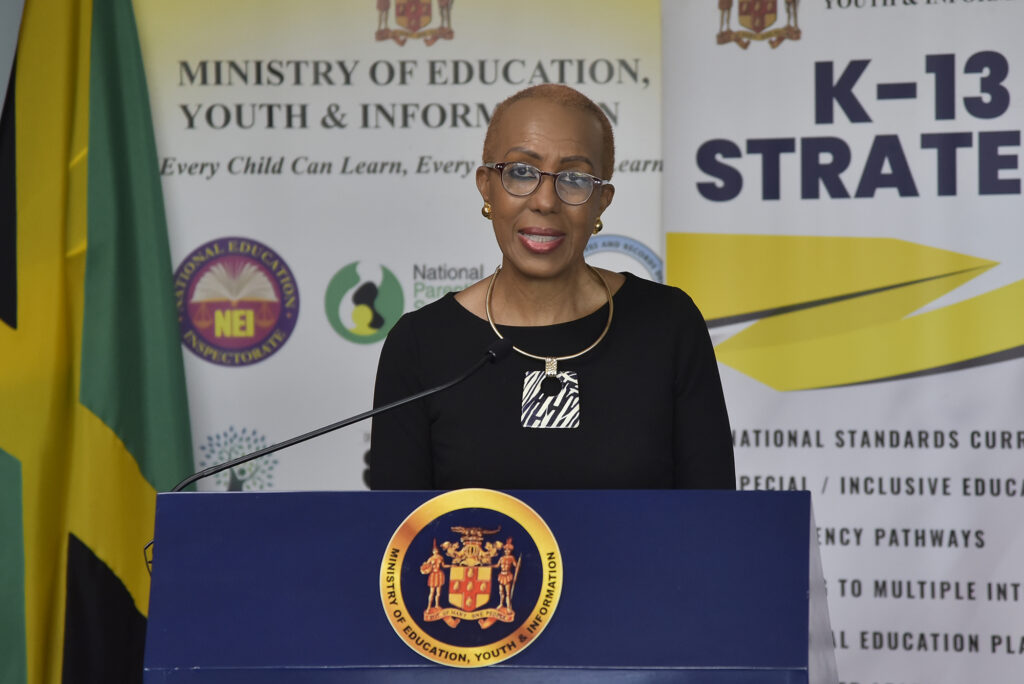

Following Cabinet’s recently approved seven years of secondary school education, all Jamaican students will now have an opportunity to be better prepared for higher-level academics and entry into the world of work or entrepreneurship, says Education Minister Fayval Williams.
Traditionally, secondary school would end at Grade 11 for 65 per cent of Jamaican students, following which the most intellectually advanced would go on to sixth form (Grades 12 and 13) for the traditional Caribbean Advanced Proficiency Exams (CAPE).
Currently, only 35 per cent of the approximately 40,000 students who complete Grade 11 annually transition to a sixth-form programme. The education ministry has noted that the primary reason for this low percentage is that many of the island’s secondary schools cannot physically accommodate their entire Grade-11 cohort who may desire to go on to Grades 12 and 13.
While the ministry works to increase space at secondary schools to accommodate more students for the seven-year programme, access to sixth form is being increased through the development of new sixth form pathways/
programmes of study.

The new pathways known as the Technical or General programme will integrate the Career Advancement Programme and the Occupational Associates Degree to prepare students for entry into the world of work or entrepreneurship.
The sixth form pathways that students will now have access to are as follows:
(1) Traditional – Caribbean Advanced Proficiency Exams (CAPE) certificate
and or associate degree or The Council of Community Colleges of Jamaica/University Council of Jamaica accredited associate degree
(2) Technical pathway – Caribbean Secondary Education Certificate/CAPE, NCTVET/CVQ Levels 2 or 3
(3) General pathway – CSEC, City and Guilds, National Council on Technical and Vocational Education and Training Level 2
New Sixth Form Pathways Programme certifications
Under the new Sixth Form Pathways Programme, all students will have the chance to leave the secondary education system with their National School Leaving Certificate in addition to one of the following certifications:
1) Occupational Associate Degree – this degree programme is designed for students who want to work in specific careers and need to acquire specific training and education.
2) Certificate or a Diploma (within an Occupational discipline)
3) Accredited Council of Community College of Jamaica (CCCJ) Associate Degree
4) Accredited University Council of Jamaica (UCJ) Associate Degree
5) CAPE Certificate or the CAPE Associate Degree
6) The National Vocational Qualification of Jamaica (NVQ-J) – this is a certificate of competence that will provide relevant qualifications that are internationally recognised. This programme provides clear learning goals so that an individual can see what skills are needed to become fully competent in a particular work function.
7) The Caribbean Vocational Qualification (CVQ) Level 2 or 3 – this is an award that represents the achievement of a set of competencies that define the core work practices of an occupational area.
8) Dual certification in CAPE Associates Degree in Industrial Technology and City and Guilds Engineering Level 3
The Sixth Form Pathways Programme will allow students to secure multiple qualifications within the two years and acquire college credits that will provide a head-start in their tertiary studies.
For those who choose not to attend a tertiary institution, the certification they receive at the end of the Sixth Form Pathways Programme will prepare them to enter various fields of work or receive further general or technical training.







Comments